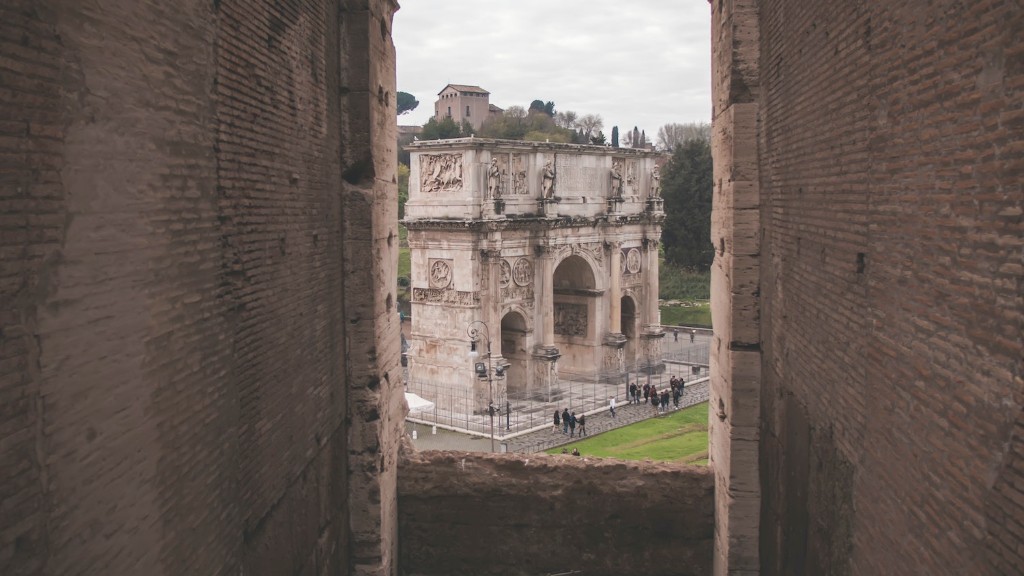Seneca was one of the most influential figures in Ancient Rome. Born in Cordoba in 4 B.C., he is remembered as one of the most important scholars, statesmen, and moralists of ancient Roman society. Seneca was a Stoic philosopher and his works are some of the most important contributions to Stoicism. His works had a major impact on many of the great thinkers of the era, including Cicero and Lucretius. He was a tutor and advisor to Emperor Nero and had an instrumental role in shaping Roman law and politics.
Seneca’s life as a philosopher, statesman, and intellectual was marked by many accomplishments and great influence. He was a vocal proponent of Stoic ideals and wrote extensively on the theme of virtue. His works dealt with topics such as anger, courage, moderation, and happiness. His plays, philosophical letters, and moral treatises continue to be studied today and cited in modern academic works.
Seneca’s status as a philosopher extended to his ability to give counsel in politics, law, literature, and other matters. He tutored the young emperor Nero and influenced both his education and his policies. As Nero eased into adulthood, Seneca’s philosophy and guidance helped shape the laws and regulations which ushered in a period of tremendous stability for Ancient Rome. Even after his dramatic falling out with Nero, Seneca’s influence in matters of state remained strong.
In his later years, Seneca traveled extensively, reconnecting with his Stoic roots and exploring new ways of understanding philosophy. Much of his work focused on improving the individual’s relationship with the natural world and examining how one could work to improve their character. His works inspired a generation of Christians, who found much of his teachings to be compatible with their own beliefs.
Seneca’s contributions to the Roman world are many and varied. He was a significant influence on many of the writers and thinkers of the era, and his writings continue to be studied and appreciated to this day. He was a major influence on Roman law and politics, and his view of Stoic philosophy served as an example for many of the great thinkers of the time.
Seneca and Stoicism
Seneca was a profound philosopher and his writings form an important part of Stoic thought. He is credited with many contributions to the Stoic school of thought and his works form a keystone in its development. He believed that the Stoic ideal of virtue was the key to leading a good life, and his teachings were focused on the importance of controlling emotions and practicing moderation.
Seneca connected the Stoic ideal of virtue with practical reason, and his works were filled with advice on how to use virtue to create a life of contentment and fulfilment. He wrote extensively on topics such as anger, courage, and happiness and his works formed an important part of the Stoic philosophy which was popular during Ancient Rome.
Modern day practitioners of Stoicism continue to find relevance in Seneca’s writings and many of his teachings remain relevant in the 21st century. Learning from his wisdom is still viewed as an important part of becoming a well-rounded individual.
Seneca and Politics
Seneca’s influence in politics was significant, as he was a trusted advisor to both Julius Caesar and Emperor Nero. He was a major influence in shaping Roman law and regulations and his views had a direct bearing on the course of the Roman Empire.
Seneca was involved in many important decisions during the time of Nero’s reign and he was instrumental in the emperor’s education and upbringing. He provided counsel on matters of state, law and literature and was a major influence on the policies of the Roman Empire.
Seneca’s influence in politics saw its greatest success during the reign of Nero and he counselled the young emperor to pursue a more progressive agenda. His insight and counsel proved invaluable and his influence helped bring a period of widespread stability and prosperity to the Roman Empire.
As Nero’s reign came to an end, Seneca fell out of favour and was forced into exile. Yet his influence continued after his death and his views still inform the policy discussions of modern-day governments.
Seneca and Studying
Seneca has been acknowledged as one of the most influential figures in ancient Roman society. His works are some of the most important contributions to Stoic thought and his writings continue to be studied today. His plays, philosophical letters, and moral treatises are studied in universities around the world, and his impact on Roman law and politics remains significant.
Modern day students of philosophy continue to find relevance in Seneca’s teachings, and his works are seen as an important part of understanding the Stoic ideal of virtue. He explored themes such as anger, courage, and happiness and his works form an integral part of the Stoic school of thought. Learning from his wisdom is seen as an important part of exploring Stoicism and understanding the way it formed part of the cultural landscape during Ancient Rome.
Seneca’s legacy is one of great influence and his impact on the Roman world is undeniable. His writings continue to shape the way we think about Stoic philosophy and his works are still studied and appreciated to this day.
Seneca and Literary Achievements
Seneca was an accomplished playwright, philosopher and statesman. He wrote extensively on a variety of topics ranging from Stoic ethics to Roman politics. He was a major influence on many of the great writers of the era and his plays and philosophical writings continue to be enjoyed and studied today.
Seneca wrote many tragedies and comedies, including Medea and Oedipus, which are still widely studied today. He was well-respected as a writer and was often seen as an authority on matters of philosophy and literature. His works were highly acclaimed and were seen as groundbreaking in terms of their themes and their approach.
Seneca was also well-known for his philosophical letters, which were seen as a major contribution to Stoic understanding. His moral treatises explored themes such as virtue and piety and his works sought to explain the Stoic ideal of living a good life. His works continue to be read and discussed and served as a major contribution to Stoic thought in ancient Rome.
In addition to his plays and writings, Seneca was also widely respected for his political achievements. He was instrumental in shaping Roman law and was a major influence in Nero’s education. His influence on Roman politics remained strong even after his death and his views still inform the policy discussions of modern-day governments.
Seneca’s Impact and Legacy
Seneca’s legacy has been one of great influence. His works are some of the most important contributions to Stoic thought and he had a major impact on many of the great thinkers of the era. He was a vocal proponent of Stoic ideals and was a major influence on Roman law and politics. His views continue to inform the political discourse of modern-day governments and his writings continue to be studied and appreciated to this day.
Seneca’s influence extended beyond Ancient Rome. His works influenced a generation of Christians, who found much of his teachings to be compatible with their own beliefs. His works continue to be studied and read by contemporary practitioners of Stoicism and many of his teachings remain relevant in the 21st century.
Seneca’s role in Ancient Rome was significant and his impact on philosophy and politics is undeniable. He was an influential figure in Roman society and his works continue to be studied and appreciated to this day. Seneca’s contributions to the Roman world were many and varied and his influence continues to shape the way we think about Stoic philosophy.





